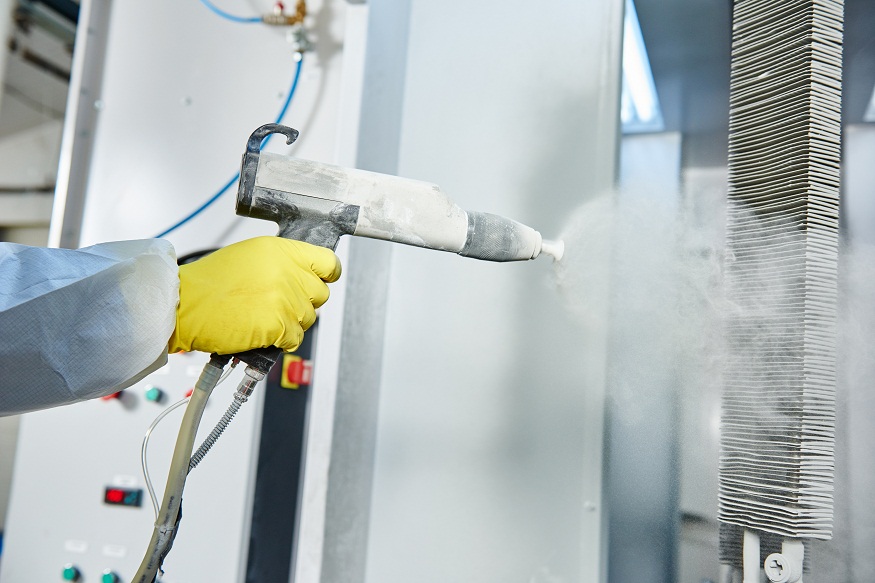In the battle against corrosion, industries rely heavily on protective coatings to safeguard metal surfaces. Among the various methods available, powder coating stands out for its effectiveness and durability. A critical component in this process is the powder coating oven, which plays a vital role in ensuring that the coating adheres properly and provides long-lasting protection. This blog will delve into how powder coating ovens contribute to corrosion resistance and extend the lifespan of metal parts.
Enhancing Metal Surface Protection Against Rust
Rust is the nemesis of metal, gradually eating away at its strength and appearance. One of the primary benefits of powder coating is its ability to create a protective barrier that shields metal surfaces from moisture and oxygen, the two key elements that cause rust. The powder coating oven ensures that this barrier is formed correctly and uniformly across the metal surface.
By heating the powder coating in a controlled environment, the powder coating oven allows the coating particles to melt and flow evenly over the metal surface. This process creates a seamless layer that adheres tightly to the metal, providing comprehensive protection against rust. The effectiveness of this protective layer is directly tied to the performance of the powder coating oven, making it an indispensable tool in preventing corrosion.
Ensuring Even Coating for Maximum Corrosion Resistance
Achieving an even coating is crucial for maximizing corrosion resistance. Any unevenness or gaps in the coating can leave the metal vulnerable to rust and other forms of corrosion. Modern powder coating ovens are designed to ensure that the coating is applied uniformly, covering every inch of the metal surface.
The precise temperature control within a powder coating oven is essential in achieving this uniformity. The heat allows the powder to flow smoothly, filling in any imperfections on the metal surface and creating a consistent protective layer. This even coating is what gives powder-coated metal its superior corrosion resistance, as it eliminates weak points where rust could potentially develop.
How High Temperatures Improve Protective Coating Quality
The quality of the protective coating is directly influenced by the temperatures used during the curing process. Industrial powder coating ovens are equipped to reach high temperatures that are necessary to properly cure the powder coating. This high heat not only melts the powder but also initiates a chemical reaction that strengthens the coating.
The curing process is where the coating’s durability is enhanced, making it more resistant to environmental factors that cause corrosion. Without the correct temperature settings, the coating may not fully cure, leading to a weaker protective layer. Industrial powder coating ovens are calibrated to maintain the ideal temperatures needed to achieve the best possible coating quality, ensuring that the metal is well-protected against corrosion for years to come.
Extending the Lifespan of Metal Parts Through Coating
Powder coating ovens play a crucial role in extending the lifespan of metal parts by providing a robust protective layer that can withstand harsh conditions. The longevity of metal components is significantly increased when they are coated in a high-quality powder coating that has been properly cured in a powder coating oven.
This extended lifespan is particularly important in industries where metal parts are exposed to corrosive environments, such as automotive, construction, and marine sectors. By investing in a modern powder coating oven, businesses can ensure that their metal parts are coated with a durable finish that resists corrosion, reducing the need for frequent replacements and maintenance.
The Role of Consistent Heat in Preventing Corrosion Damage
Consistency in heat application is a key factor in preventing corrosion damage. A modern powder coating oven provides the stable and even heat required to cure the powder coating effectively. Any fluctuations in temperature can result in an uneven coating, which compromises the metal’s protection against corrosion.
The ability of a powder coating oven to maintain consistent heat throughout the curing process ensures that the coating bonds securely to the metal surface. This strong bond is what gives the coating its resistance to cracking, chipping, and peeling, all of which can expose the metal to corrosive elements. By using a reliable powder coating oven, industries can achieve a consistently high-quality finish that protects metal parts from corrosion damage.

